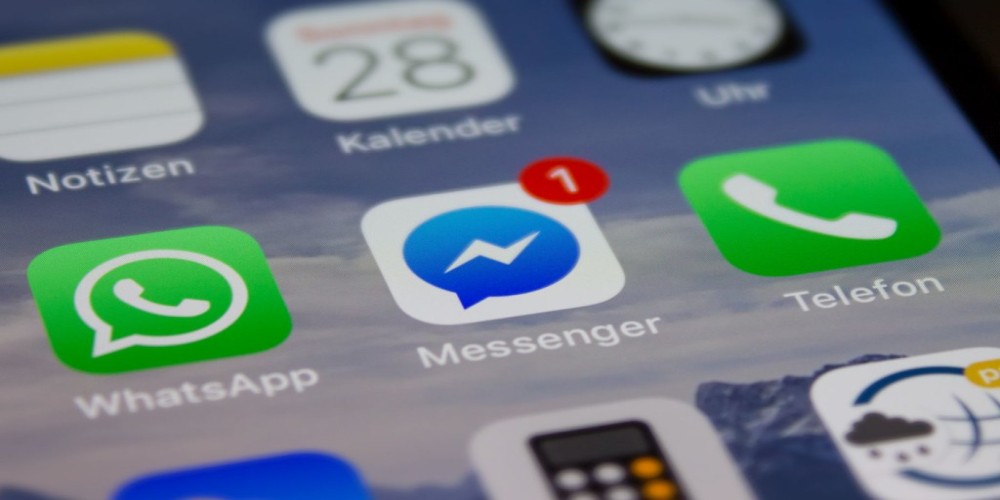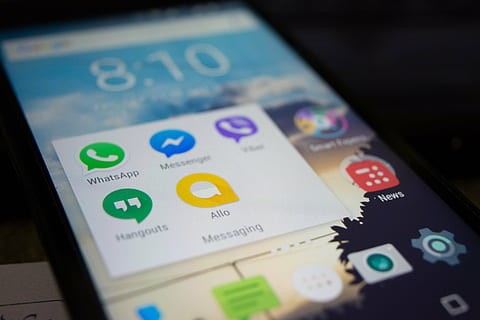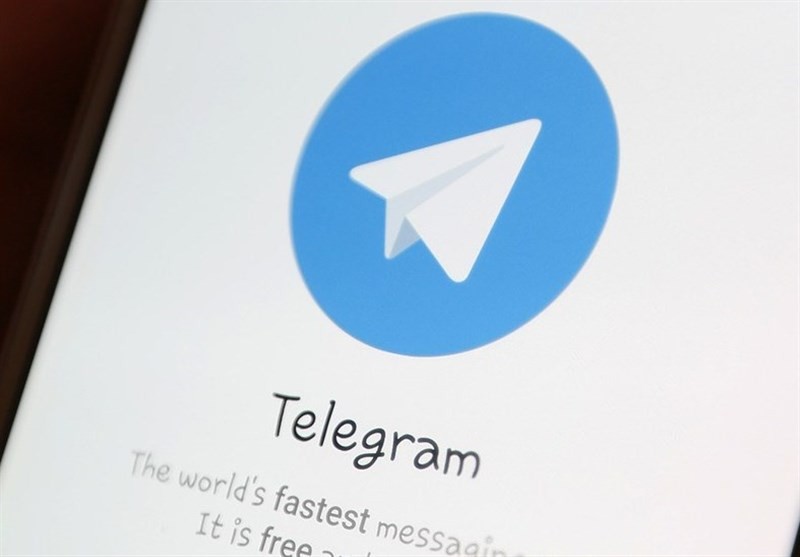Fortifying Your Conversations: Your Ultimate Guide to Secure Messaging Apps

In an era where digital communication has become a staple in our daily lives, the importance of maintaining privacy cannot be overstated. We share sensitive information through our messages, including personal details, business secrets, and intimate conversations. However, amid growing concerns over data breaches and surveillance, it's become increasingly important to understand how to protect our digital dialogue.
Secure messaging apps offer a solution, providing end-to-end encryption that ensures only the sender and the intended recipient can read the content of a message. This guide dives deep into the world of secure messaging apps, offering insights into their importance, how they work, and how you can leverage them to safeguard your privacy in the digital age.
The Importance of Secure Messaging
As we delve into the world of secure messaging, it's crucial to comprehend the significance of digital privacy. In this age of mass surveillance and cyber threats, every word we type, every picture we send, and every document we share can potentially fall into the wrong hands. Whether it's hackers, corporations, or government entities, the risks to our personal privacy are real and ever-present.
Secure messaging apps are not just a tool for the privacy-conscious individual but also a necessity for journalists, activists, and businesses that handle sensitive information. For journalists and activists, these apps can be the difference between safety and exposure, free speech and censorship. Businesses, on the other hand, need to protect their intellectual property and customer data from competitors and cybercriminals.
The traditional SMS or standard messaging services offered by mobile carriers are vulnerable to interception. Likewise, many popular messaging platforms may collect data for advertising purposes or could be compelled to hand over information to authorities. Secure messaging apps mitigate these risks by employing robust encryption protocols, rendering messages unreadable to anyone other than the intended recipient.
Moreover, secure messaging is about more than just encryption. It encompasses features like self-destructing messages, anonymous sign-ups, and minimal data retention policies. These features give users control over their digital footprints and ensure that their conversations do not leave a trace for others to exploit. In a world where our data is a commodity, and our privacy is in jeopardy, secure messaging apps stand as a bastion against intrusion. They empower users to communicate freely and confidentially, knowing their conversations are protected from prying eyes.
Understanding End-to-End Encryption

End-to-end encryption (E2EE) is the cornerstone of secure messaging. It's a system of communication where only the communicating users can read the messages. The concept might seem complex, but the underlying principle is straightforward: When you send a message, it's encrypted on your device before it ever leaves for the internet.
This message travels through servers and networks as a scrambled code that's virtually indecipherable to anyone except the person with the unique key to unlock it—the intended recipient. The encryption process involves converting the original readable text (plaintext) into an encoded version (ciphertext), which looks like gibberish to anyone who intercepts it. This transformation is done using an algorithm and a set of keys.
With E2EE, the sender's device encrypts the message using a public key, but it can only be decrypted by the recipient's private key, which is securely stored on their device and nowhere else. One of the most popular encryption protocols used by secure messaging apps is the Signal Protocol, developed by Open Whisper Systems. It's known for its strength and reliability and is used by a range of apps, including Signal, WhatsApp, and Facebook Messenger's Secret Conversations feature.
End-to-end encryption ensures that even if a message is intercepted during transmission, the content remains secure and unreadable. Additionally, many secure messaging apps do not store the encryption keys on their servers, which means they cannot access the content of your conversations. This design is intentional, providing a structure known as "zero-knowledge," where the service provider knows nothing about the data being communicated or stored.
However, while E2EE is crucial for privacy, it's not the only factor to consider. Users should also be aware of metadata—information about the message, such as the sender, recipient, time sent, and more. Some secure messaging apps go the extra mile to protect metadata, ensuring that your communications remain private in every aspect.
Features to Look For in Secure Messaging Apps
When choosing a secure messaging app, it's important to look beyond just end-to-end encryption. A truly secure app will offer a suite of features designed to maintain your privacy at every turn. Here are some key features to consider when evaluating secure messaging apps:
- Open Source Software: Open source messaging apps have their source code available for anyone to inspect, audit, and improve. This transparency allows experts to verify the security of the app and ensures there are no backdoors.
- Independent Security Audits: Regular security audits conducted by independent third parties can provide assurance that the app is as secure as it claims to be. These audits can reveal vulnerabilities that need to be addressed.
- Minimal Data Retention: The less data the app retains, the less there is to be compromised. Look for apps that collect minimal metadata and have clear policies on data retention.
- Self-Destructing Messages: Some secure apps offer messages that automatically delete after a certain period of time or upon reading. This feature can protect sensitive information even if the recipient's device is later compromised.
- Verification Mechanisms: To prevent man-in-the-middle attacks, secure apps often provide ways to verify the identities of the people you're communicating with, such as safety numbers or in-person QR code scanning.
- No-logs Policy: A commitment not to collect or store information about your usage of the app, your contacts, or your messages ensures that your privacy is upheld.
- User Anonymity: The ability to use the app without providing personal information like your phone number or email address can help maintain your anonymity.
- Passcode Locks and Authentication: Additional security layers, such as requiring a passcode or biometric authentication to access the app, can protect your messages if your device is lost or stolen.
It's important to remember that no app is 100% secure, and security is as much about user behavior as it is about the app's features. Always practice good security hygiene, such as keeping your app and operating system up to date, being cautious about unsolicited attachments or links, and being aware of shoulder surfers when typing sensitive information.
Top Secure Messaging Apps to Consider

Now that we understand what makes a messaging app secure and what features to look for, let's explore some of the top secure messaging apps available:
- Signal: Often recommended by security experts, Signal offers state-of-the-art end-to-end encryption based on the open-source Signal Protocol. It's funded by a nonprofit organization, which means there's no advertising or data selling. Signal provides features like self-destructing messages, screen security (prevents screenshots), and minimal data retention.
- Telegram: With a focus on speed and security, Telegram offers end-to-end encrypted chats through its "Secret Chats" feature. It also includes message self-destruction and provides cloud-based messaging for syncing across devices.
- WhatsApp: Although owned by Facebook, WhatsApp features end-to-end encryption using the Signal Protocol. However, it's important to note that metadata may still be shared with parent company Facebook for advertising purposes.
- Threema: This app is designed with privacy as its core selling point. Threema doesn't require an email address or phone number to register, keeping user identity protected. It also offers end-to-end encryption for messages, calls, and even status updates.
- Wickr Me: Wickr Me prides itself on its strong user privacy policies and security features.
It includes end-to-end encrypted messaging, file sharing, and voice calls, with no email or phone number required for registration. While these apps are known for their security features, it's vital to choose one that fits your specific needs and to keep in mind that the security landscape is always changing. Stay informed about the latest updates and potential vulnerabilities of the app you choose to use.
Best Practices for Secure Messaging
Adopting a secure messaging app is the first step toward protecting your privacy, but it's equally important to follow best practices for secure communication. Here are some tips to enhance your messaging security:
- Verify Contacts: Take the time to verify the identities of the people you're communicating with, especially when discussing sensitive information.
- Keep the App Updated: Regularly update your messaging app and mobile operating system to protect against the latest security threats.
- Be Wary of Backups: Understand the backup policies of your messaging app. Encrypted messages may be decrypted once stored in the cloud, so consider disabling cloud backups if security is a top concern.
- Limit Sensitive Information: Even with secure messaging, it's wise to limit the sharing of highly sensitive personal information.
- Use Screen Locks: Enable a passcode, fingerprint, or face lock on your device to prevent unauthorized access to your messages if your phone is lost or stolen.
- Be Cautious with Links and Attachments: Avoid opening links or downloading attachments from unknown or untrusted sources.
- Enable Security Notifications: Some apps will notify you if the security of a chat has changed, such as when a contact's key has changed. Enable these notifications for added security.
- Practice Good OPSEC: Operational security (OPSEC) involves being mindful of how you handle information and being aware of the digital traces you leave behind.
By combining the use of secure messaging apps with these best practices, you can significantly reduce the risks to your digital privacy and enjoy more secure communications.
- Mariana Rocha 03 Dec 2023

